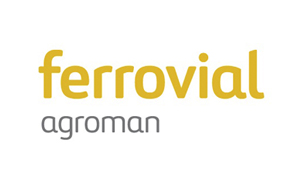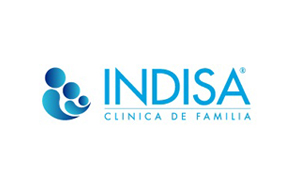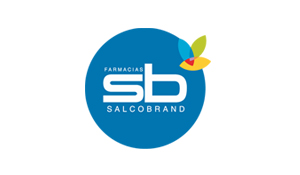The limit relates to specific debts owed by the buyer, stated Linda Jun, senior policy counsel at People in the us for Financial Reform. Some body with over one bill in collections could quickly be overwhelmed, Jun stated. “It could accumulate quickly,” she stated.
In the event that collectors emailed or texted many times it might be considered harassment and get unlawful, in line with the CFPB.
But unlike with calls, the bureau just isn’t proposing a cap that is specific the sheer number of associates.
The proposition additionally asks loan companies if they anticipate making use of social media to get hold of consumers while prohibiting such contact if maybe it’s seen by an authorized. Some loan companies have discovered how to make use of media that are social.
Diandra Rivera of Brooklyn said she stopped publishing to Twitter and closed her LinkedIn account after realizing loan companies had started monitoring web sites. One combed through her LinkedIn web web page to locate a boss that is former also nearest and dearest, whom your debt collector then contacted, she stated.
Another monitored her Facebook web web web page. During telephone calls utilizing the business collection agencies agency, the representative would point out social outings she had published on Facebook, Rivera stated. The agent questioned why she had been behind in repaying her education loan payments if she could manage to visit Applebee’s, Rivera stated.
“It was creepy,” she said.
The proposed guidelines will probably set up a battle between loan companies and customer advocates. The CFPB received about 81,500 complaints about loan companies in 2018, based on a study released in March, making the industry certainly one of the agency’s many common resources of customer complaints.
Offering loan companies such latitude that is wide expand electronic interaction is unwarranted, said Christine Hines, legislative director for the nationwide Association of Consumer Advocates.
“With the extreme samples of collectors’ harassment and intrusion of customers’ privacy that we’ve seen, it is constantly a bad concept to exempt loan companies from obligation or grant them a secure harbor, in just about any circumstance,” she said. “Seems as a invite to encourage more punishment maybe not deter it.”
Many industry officials state the transfer to the electronic space could be transformative. Loan companies happen to be combing through social networking to trace customers’ electronic footprints and building models to ascertain if they will be very likely  to answer male or voices that are female.
to answer male or voices that are female.
TrueAccord, established in 2014, happens to be wanting to place a friendly face on your debt collection industry and seldom calls customers, Samet said. The business he co-founded “crunches plenty of data” to create a profile of customers, centered on what type of services and products they’ve bought as well as on their responses that are previous attempted associates, he stated. Ninety per cent for the ongoing company’s interaction with customers will not include a person, he said.
“There is machine learning at play right right right here,” he stated.
Samet said he thinks consumers appreciate TrueAccord’s approach. Texting and e-mails certainly are a “channel you engage with additional usually but in the event that you don’t like my email it is a swipe for the hand to help make me disappear. You are able to put up filters. You can certainly do large amount of what to handle your communications,” he said.
The CFPB has gotten a lot more than 50 complaints about TrueAccord since 2015, in line with the bureau’s database, which does not determine complainants.
“This woman keeps emailing me personally constantly. She’s got even went as far as to share with me personally that she understands i will be starting the email messages. This woman is harassing me at this point,” according to a grievance filed aided by the CFPB previously this season. “This just isn’t ok. Please assist me.”
In 2017, the CFPB was told by a consumer that TrueAccord was in fact too aggressive. “This e-mail had been written this kind of a matter as to convince me personally me both physically and try to ruin my reputation that they will threaten. They claimed they might use any means offered to gather the cash they do say is owed,” in line with the issue.
Samet said the complaints are typical for the type or type gotten by other solution organizations such as for example Comcast and a “fraction” of exactly exactly what rivals get. “We never want individuals to complain,” he stated.
To be certain, digital communications from creditors can be beneficial to customers. Email messages and texting create a impact you can use to trace straight straight straight down loan companies hiding behind post-office bins and shell organizations, stated Ohio attorney Jonathan L. Hilton, whom practices customer law. In a few instances, Hilton stated he’s subpoenaed Bing or cellphone organizations to get the names, details and also banking account information of loan companies. “It’s extremely useful through the side that is investigative” he said.
Vicki Chester, a retired nurse’s associate, said she had been overwhelmed with calls from the financial obligation collector about a classic $350 debt for months before she relented and made two $60 re payments. “The phone phone calls had been nasty,” said Chester, a customer of Hilton’s. “I became throwing and switching every evening wondering if my goal is to be chosen up.”
Finally, she asked your debt collector to send details about the debt to her an email. This is certainly whenever Chester said she understood she was being hounded about cash she didn’t owe. “I recognized, that isn’t my financial obligation,” said Chester, whom received a $6,000 settlement from the commercial collection agency agency. “They had the incorrect Vicki.”
The 1977 Fair commercial collection agency procedures Act ended up being written before cellphones became the constant friend of People in america. Regulations forbids loan companies from calling before 8 a.m. or after 9 p.m. and forbids harassment. Nonetheless it didn’t straight address many kinds of electronic interaction.
The CFPB proposition would alter that, which may be a relief for Elle Gusman.
Minnesota-based Direct healing Services has tried both texting and e-mails, stated Gusman, whom founded the ongoing business in 2012. Email messages were effective at first then again began getting flagged as spam by Bing, particularly when sent call at big batches, she stated. The organization also created a brand new website name, but terms contained in the e-mails or their accessories — such as for example financial obligation, password, account, pay on the web — would get flagged, she stated.
“It won’t go through,” said Gusman.
Customers additionally seemed to like text that is receiving about their delinquent bills, stated Gusman. “Millennials would like to use the internet and spend their bills, she stated. “It could be crazy, within an hour or so of just giving our communications, we might get 20, 30 re payments online.”
Giving the communications was costly also it ended up being tough to add all the necessary disclosures in a few figures, stated Gusman.
One of many people Recovery that is direct Services had been Fultz, the Ohio paramedic, whom stated he discovered the communications intrusive.
The business has stopped the training but Gusman stated this woman is hoping the CFPB proposition will permit the ongoing business to use once again.














Comentarios recientes